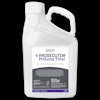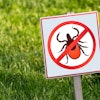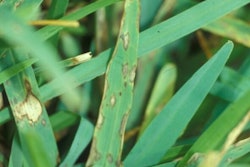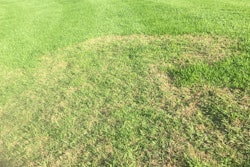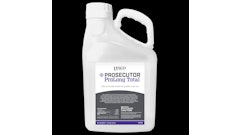
In recent years, continuing calls for neonicotinoid insecticide bans sparked intense debate and stirred concerns across industries reliant on effective pest management solutions. As public interest groups advocate for these product bans, ripple effects are particularly felt within the lawn care and landscape sector, a cornerstone of both responsible environmental stewardship and thriving community spaces. With continuing calls for a prohibition on these products, understanding the nuanced impacts and navigating the evolving regulatory landscape aren’t just good business but are essential for the sustainability of our industry.
We can all agree that neonicotinoids and other insecticides are essential tools for maintaining public and private places and spaces and protecting turf, trees, ornamental plants and forest lands from harmful and invasive species. These important products are regulated by the U.S. Environmental Protection Agency (EPA) under the Federal Insecticide, Fungicide, and Rodenticide Act (FIFRA) and undergo rigorous, science-based processes that thoroughly evaluate the safety and efficacy of pesticides before they can be offered for sale and use. Both federal and state review processes for pesticides consider hundreds of scientific studies, product chemistry, exposure and dispersion methods before any product can be made available to applicators.
Despite the existing regulatory framework, we’re continuing to see unnecessary and sometimes duplicative regulation at the state level. This year, New York enacted Senate Bill 1856, which restricts the use of neonicotinoid pesticides in nonagricultural settings. Four states introduced legislation to restrict neonicotinoid use—Arizona, Connecticut, Hawaii and Washington and legislation passed in Vermont.
The constant pressure on neonicotinoid insecticides means we must stay current about pesticide regulation and what it means to obtain an EPA registration for a product. As you know, the EPA registration process ensures that when applied according to the label, products can be used safely. It’s no secret that neonicotinoids are important insecticides for controlling common insect problems, such as grubs that eat grass roots and aphids that remove nutrients from plant leaves and stems, as well as for treating invasive emerald ash borer infestations and the hemlock woolly adelgid. As insecticides, this class of chemistry is also essential to have in rotation for effective resistance management as well as available for native pests entering new states and for invasive species from other countries.
We know applicators depend on access to neonicotinoids to create ideal environments for trees and plants to thrive. The precedent established for all insecticides through bans and restrictions on these products limit solutions choices and make our green spaces vulnerable to current and emerging pest pressures. Telling your story is an important aspect of ensuring access to the pesticide tools you need to maintain plant health and the environment. I urge you to talk about integrated pest management and the role a range of solutions plays in resistance management with people outside of our industry, especially elected officials. This is the information policymakers need to hear from applicators, who are also registered voters.
It’s an election year. Newly elected officials from town councils to the United States Congress will need to know about your practices, people and the benefits you are delivering every day. I know this is also a focus of the national and state associations you support. Please answer their calls to action and proactively introduce yourself to those just elected and serving their first terms in office. They need to know you as an expert and a resource, a source of facts and stories that bring clarity and understanding about why you apply pesticides and why you are in the business.
Our conversations have always been very positive with new legislators and their staff. Please consider visiting with your city council members, your state elected officials or your members of Congress’ district office or even attending a fundraiser. Your engagement makes a positive difference to our industry’s reputation and to continued product availability. We are living in unprecedented times when people must be reminded of the value of your work and the positive impacts of pesticide products and their applications. Let’s keep the conversation going by telling our story and building new relationships within and outside of our industry.
We believe our role at RISE is to help policymakers understand the role of specialty products and how they are applied to ensure critical applications can continue. Our role is also to be a source of information about pesticides for the applicator. The most important thing you can do is stay informed about this issue through your national and state associations and your state lead agency for pesticide regulation. You can also join the conversation. As an applicator, you are the expert on product use and benefits. Your expertise and experience are key in conversations with policymakers and regulators, who make decisions about our industry and its practices. Your voice matters.
RISE is always working with national and state partners to ensure regulators hear from applicators about pest management practices and the unique nature of green industry pesticide applications. The issues we face are often not easy and take time to address, but together, we can tell our story, and in the process, maintain access to the necessary and effective tools that provide people and communities with the safe and well-maintained places and spaces they count on for work and play.

